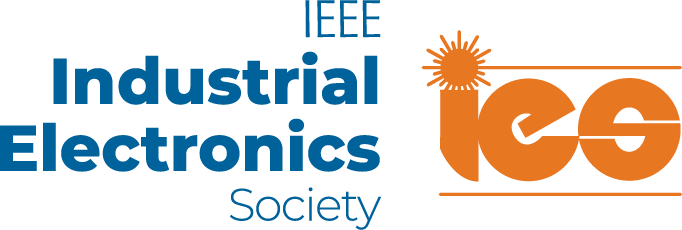Special Session
SS 08 - Emerging Technologies and Applications of Wireless Power Transfer
SS 08 - Emerging Technologies and Applications of Wireless Power Transfer
Organizers
Wei Han, Hong Kong University of Science and Technology, China
and
Chaoqiang Jiang, City University of Hong Kong, China
and
Hui Zhao, Fudan University, China
and
Zhichao Luo, University of Cambridge, UK
and
Dianxun Xiao, McMaster University, China
Session Focus
As one of the most epoch-making techniques, wireless power transfer (WPT) has been promoted for various applications, especially for the electric-driven devices. Since the WPT technique possesses the advantages of reliability, automation, safety, low maintenance, convenience, and electrical isolation, more and more academic researchers and industries are getting involved in this emerging area. Thus, the WPT shows significant meanings for charging implanted medical devices, integrated circuits, portable electronic devices, and electric vehicles, etc.. Moreover, the WPT can be artfully used in the lighting and heating applications, or with motor drives and multilevel converters. This session aims to offer a timely opportunity for academic researchers and industrial engineers to present, discuss, and exchange the latest results and findings of WPT technologies on the topology design, electromagnetic field theory, power electronics and applications, as well as the future development directions.
Session Topics
- Wireless charging for electric vehicles
- Emerging applications such as wireless lighting and heating, etc
- Integration of the WPT and motor drives
- Multilevel converters in the WPT
- High frequency converters for WPT
- Wireless charging systems for portable devices and smart home appliances
- Analytical and finite element methods for WPT technologies
- Electromagnetic compatibility and safety designs
- Detection techniques for wireless charging
- Multiple-frequency multiple-objective WPT applications
- Overview paper on WPT techniques and development
Bio of the organizers
Wei Han (S’16–M’20) received the B.Eng. degree in Electrical Engineering and Automation from Northeastern University, China, in 2014, and his M.Eng. and Ph.D. degrees in Electrical and Electronic Engineering from The University of Hong Kong in 2015 and 2020, respectively. In 2020, he was a Visiting Researcher at the Nanyang Technological University, Singapore. He was a Postdoctoral Fellow at University of Toronto from 2020 to 2021. He is currently working as an Assistant Professor with the Sustainable Energy and Environment Thrust, Function Hub, Hong Kong University of Science and Technology (Guangzhou), China.
His research interests include power electronics, wireless power transfer, electric machines and drives, electric robotics, vehicles and aircrafts. In these areas, he has authored or co-authored more than 40 refereed papers. In addition, Dr. Han is currently the Guest Editor of Energies and World Electric Vehicle Journal (WEVJ).
Chaoqiang Jiang (S’16-M’19) received the B.Eng. and M.Eng. degrees (First Class Honours) in Electrical Engineering and Automation from Wuhan University, Wuhan, China, in 2012 and 2015, respectively, and the Ph.D. degree in Electrical and Electronic Engineering from The University of Hong Kong, Hong Kong SAR, in 2019.
He is currently an Assistant Professor with the Department of Electrical Engineering, faculty member in the State Key Laboratory of Terahertz and Millimeter Waves, City University of Hong Kong, Hong Kong SAR, China. He was a Postdoctoral Research Associate from 2019 to 2021 at the University of Cambridge, U.K. Also, he is affiliated with Clare Hall, University of Cambridge since 2021. In 2019, he was a Visiting Researcher at the Nanyang Technological University, Singapore. His research interests include power electronics, wireless power transfer techniques, electric machines and drives, and electric vehicle (EV) technologies.
Dr. Jiang is currently an Associate Editor of IET Renewable Power Generation, Guest Editor of IEEE Open Journal of Vehicular Technology, Guest Editor of Energies. He has been rewarded with the Winner, CAPE Acorn Blue Sky Research Award at the University of Cambridge, and First Prize in the Interdisciplinary Research Competition at the University of Hong Kong.
Hui Zhao (S’14-M’18) received the Bachelor’s and Master’s degree in electrical engineering from Huazhong University of Science and Technology, Wuhan China, in 2010 and 2013, respectively. He received the Ph.D. degree in electrical engineering from the University of Florida, Gainesville, FL, USA in 2018. From 2018 to 2021, he was with the University of Cambridge as a postdoc researcher. Currently, he has been an Associate Professor with the school of information science and technology at Fudan University, Shanghai, China.
Dr. Zhao has participated in the projects supported by National Science Foundation Career Award in the United State, Innovate UK in the United Kingdom, Huawei, and China Railway Rolling Stock. He has published more than 20 IEEE journal and conference papers and holds five U.S. patents.
Zhichao Luo (S’16-M’19) was born in Guangdong, China, in 1991. He received the B.S. degree in automotive engineering from the South China University of Technology, Guangzhou, China, in 2014. He received the Ph.D. degrees in automotive engineering from Tongji University, Shanghai, China, in 2019. He was a Postdoctoral Fellow from 2019 to 2021 at the University of Toronto, Canada. He is currently working as a Postdoctoral Research Associate at the University of Cambridge, U.K. His current research interests include magnetic field modeling, wireless power transfer technologies, and power electronics in electric vehicles.
Dianxun Xiao (S’19-M’21) received the B.Eng. and M.Eng. degrees in Electrical Engineering from the Harbin Institute of Technology, Harbin, China, in 2016 and 2018, respectively, and the Ph.D. degree in Electrical and Computer Engineering from McMaster University, Hamilton, ON, Canada, in 2021. He is currently working as a Postdoctoral Research Fellow at McMaster Automotive Resource Centre, McMaster University. His research interests include advanced motor drive systems, high-power converters, and battery management systems for transportation electrification applications. He participated in Canada Excellence Research Chair in Hybrid Powertrain Program and had closed cooperation with BorgWarner Inc. and Eaton Inc. in powertrain design for electric vehicles and more-electric aircrafts. He is now serving as the Committee Member and Publication Track Chair in the 2022 IEEE/AIAA Transportation Electrification Conference and Electric Aircraft Technologies Symposium.

